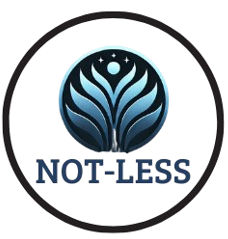My guilty pleasure is watching the Real Housewives franchise. I like Orange County, New York, Salt Lake City and some others. I am not ashamed.
But what was shameful was the interaction between Rebecca Minkoff and Brynn Whitfield in Season 15, episode 11. It featured a tense moment where Rebecca told Brynn, “When you have kids, you will understand,” dismissing Brynn’s opinion as a woman without children. Rebecca later called Brynn a bully as the spat continued.
The Setting: A Room Assignment Turns Tense
The tension started over something seemingly simple: picking rooms in a villa. The group was on a trip organized by Racquel Chevremont, and as the women decided who would sleep where, Rebecca Minkoff expressed a wish to have a room to herself. Her reasoning? She has kids at home and needed “a break.”
Brynn Whitfield chimed in, pointing out what felt obvious to her: everyone wanted a room to themselves. “It doesn’t matter if you have kids or not,” she said. But Rebecca fired back with a comment that cut deep: “It’s a little different. You’ll know when you have them.”
Ouch.
Why Words Like This Hurt
For someone like Brynn, Rebecca’s words weren’t just a casual remark. They stung. Brynn’s response was raw and relatable: “I know what it’s like to be busy! I don’t need to know kids; I’m very busy.”
This wasn’t just about room assignments or busy schedules—it was a reflection of a much larger issue. Rebecca’s comment embodied a societal narrative that often equates motherhood with worthiness or expertise. Women without children—whether by choice or circumstance—are too often dismissed or diminished, as if their opinions and struggles are somehow less valid.
A Common Experience for the Childfree Not by Choice
For those of us who are childfree not by choice, moments like this feel all too familiar. We’ve all faced comments like “You’ll understand when you have kids” or “You don’t really know busy.” These remarks—whether intentional or not—can feel like a subtle (or not-so-subtle) way of saying we’re “less than.”
This moment on RHONY reminds us that these kinds of assumptions can cause real harm. Whether someone is childfree by choice, struggling with infertility, or navigating other life circumstances, dismissing their experiences based on parental status is reductive and unfair.
Lessons from Reality TV to Real Life
By the end of the episode, the cracks in Rebecca and Brynn’s relationship were undeniable. Rebecca later admitted her comment wasn’t entirely about the room; it was the culmination of simmering tension between the two women.
And that’s where the real lesson lies: words, even offhanded ones, can carry weight. They can wound, especially when unspoken emotions and assumptions lie beneath the surface.
We can all take something away from this RHONY moment. Let’s stop making parenthood a prerequisite for understanding life’s challenges. Let’s challenge the narrative that equates worthiness with whether or not someone has children.
A Reminder to Be Thoughtful and Inclusive
This story isn’t just reality TV drama—it’s a mirror reflecting real-life dynamics. It’s a reminder to think twice before making assumptions about someone else’s experiences or dismissing their perspective.
Whether we’re childfree, parents, or somewhere in between, we all bring value, wisdom, and insight to the table. Let’s embrace that and create a world where every voice matters—kids or no kids.

